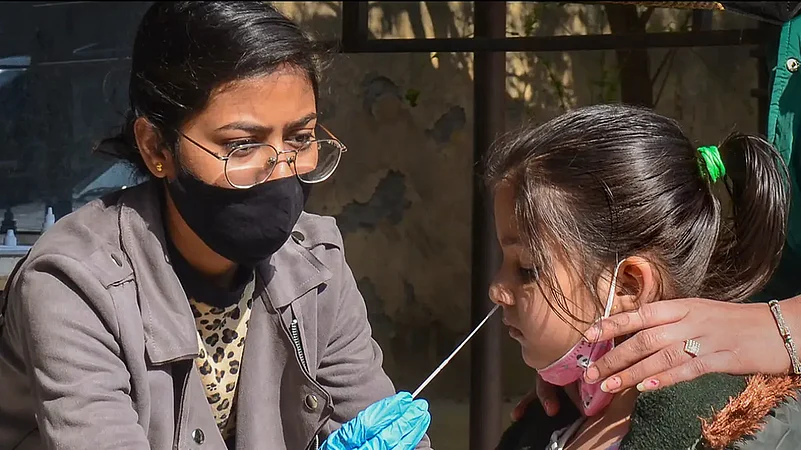The Government of Delhi last year adopted a colour-coded action plan to deal with a surge in COVID-19 and manage restrictions that would be in accordance with the severity of the surge.
There are four levels in this model with increasing levels of severity and accomponying restrictions — yellow, amber, orange, and red.
There will be a three-fold criteria to decide these levels — the prevailing positivity rate, active cases, and occupancy of oxygen beds in hospitals. These alerts will be issued through an official order of Delhi government's chief secretary. Each level will add to the restrictions of the previous level.
The yellow is the first stage
The national capital would enter the first stage — yellow stage — when:
- Positivity rate remains over 0.5 per cent for two consecutive days
- Cumulative new positive cases (for a duration of one week) touch 1,500
- Average occupancy of oxygen beds in hospitals remains 500 for a week
The restrictions:
- Non-essential shops and services to open on odd-even basis between 10 am-8 pm
- One weekly market per municipal zone at 50 per cent capacity of vendors
- Restaurants and bars to open at half capacity between 8 am-10 pm and 12-10 pm respectively
- Cinemas, banquet halls, auditoriums, spas, gyms, yoga centres, and entertainment parks to be closed
- Metro and buses to run at 50 per cent capacity
- Private offices to function at half capacity between 9 am to 5 pm
- Complete ban on social/entertainment/religious/political/festival-related gatherings.
- Sports complexes, stadiums except for national, international events to be closed
- Twenty persons allowed in weddings and funerals — with no event at banquet hall
- Night curfew between 10 pm-5 am will also be enforced
While all these restrictions would come into place, public parks, construction work, e-commerce, barber shops and beauty parlours would continue to function.
The second level is amber
The alert will escalate to amber stage when:
- Positivity rate is over 1 per cent for two consecutive days
- There are 3,500 new infections in a week
- The average oxygen bed occupancy is over 700 in a week
The restrictions:
- Restaurants and bars to close but home delivery and takeaways to continue
- Shops to open during 10 am-6 pm
- Public parks, barber shops, and beauty parlours will close
- Metro to run at 33 per cent capacity and buses at 50
- Weekend curfew between 10 pm Friday to 5 am Monday
The third level is orange alert
Most of the public activities come to halt with the orange level. It's just one step short of a lockdown. Its conditions are:
- Positivity rate of over 2 per cent for two consecutive days
- A total of 9,000 new cases in a week
- Occupancy of 1,000 oxygen beds in hospitals in a week
The orange-level restrictions are:
- Metro to be stopped, buses to run at half capacity only for passengers in essential activities
- Shops to close, except those in essential activities
- Only construction with on-site workers' accomodations to be allowed
- Only factories of essential goods with on-site accomodations to be allowed
- Private offices, unless exempted, to be shut
- Only 15 people at weddings and funerals
The red alert
Delhi would enter the fourth and final red alert phase when:
- Positivity rate would over 5 per cent for two continuous days
- Weekly cases would cross 16,000
- Weekly oxygen beds' occupancy would cross 3,000
The red alert means a lockdown. There will be total curfew on movement of people except for essential activities.


























